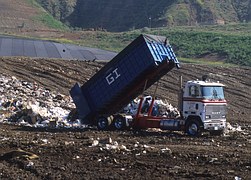Forfeiture of Public Employment for Conviction of a Crime, and the Supreme Court’s Decisions on Waivers of Forfeiture of Public Employment
 Our employment attorneys represent New Jersey Civil Service employees in appeals of disciplinary action. Recently, New Jersey’s Supreme Court had the opportunity to clarify some of the circumstances in which a government employee can obtain a waiver of the rule that he forfeit his job when convicted of a criminal offense.
Our employment attorneys represent New Jersey Civil Service employees in appeals of disciplinary action. Recently, New Jersey’s Supreme Court had the opportunity to clarify some of the circumstances in which a government employee can obtain a waiver of the rule that he forfeit his job when convicted of a criminal offense.
In the case of Flagg v. Essex County Prosecutor, the New Jersey Supreme Court had the opportunity to review the effect of a public employee’s conviction for a disorderly persons offense (the equivalent of a misdemeanor) on their government job. New Jersey’s forfeiture law requires that employees forfeit their public employment if the conviction is for a crime (the equivalent of felony) of dishonesty, is required by the New Jersey Constitution, or is a disorderly persons offense “involving or touching such office, position or employment.” However, a subsection of this law provides an exception. This provides that “forfeiture or disqualification… which is based upon a conviction of a disorderly persons or petty disorderly persons offense [misdemeanors] may be waived by the court upon application of the county prosecutor or the Attorney General and for good cause shown.” The law is silent about what standard a prosecutor should use to review such applications.
Flagg was a maintenance worker for the City of Newark. He was convicted in municipal court of illegal disposition of solid waste, a disorderly persons offense. He did this in the course of his job at the direction and in the presence of his supervisor. He was sentenced to a six month loss of his drivers license, a $5,000 fine, and five days of community service. He was not sentenced to jail, nor did the statute provide for jail for this solid waste violation.
 New Jersey Lawyers Blog
New Jersey Lawyers Blog


 Businesses wishing to transport solid waste in New Jersey are required to strictly comply with the registration process governed by the
Businesses wishing to transport solid waste in New Jersey are required to strictly comply with the registration process governed by the  The transportation and disposal of solid waste in New Jersey is a heavily regulated industry. The statutory and regulatory framework of New Jersey
The transportation and disposal of solid waste in New Jersey is a heavily regulated industry. The statutory and regulatory framework of New Jersey 